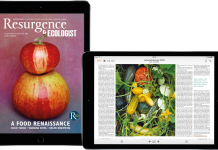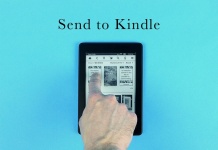![]() NPR’s On the Media has an interesting six-minute segment on a study that Professors Katherine Milkman and Jonah Berger did to determine what kinds of New York Times news stories were most likely to be emailed to friends using the site’s sharing tools. The study turned up a few interesting findings.
NPR’s On the Media has an interesting six-minute segment on a study that Professors Katherine Milkman and Jonah Berger did to determine what kinds of New York Times news stories were most likely to be emailed to friends using the site’s sharing tools. The study turned up a few interesting findings.
The study determined that the stories that will be shared the most are the ones that most inspired awe in the reader. Milkman compares this to the reasons that religion spread throughout the world—when we have what we consider to be an amazing experience, we want to share it with others. It gives us something to talk about, and a way to relate to each other by way of that discussion.
Another finding was that stories that inspire anger or anxiety are more likely to be shared than those that inspire sadness. This also makes sense—if we get angry or scared about something, we want to do something about it, even if it’s only sending it along to get someone else angry or scared too. But nobody likes downers, and we don’t want to be the people who sent our friends something depressing.
The finding that is the most puzzling is that stories by female authors are significantly more shared than stories by male authors, even after controlling for all other factors. Milkman expresses a few theories having to do with different writing styles between genders, and even one fairly controversial one suggesting that perhaps female writers just have to be better at their job in order to be hired by the Times, but doesn’t have any real idea of why it should be the case.
Milkman felt that it could be bad if news sources tried to tailor their coverage toward sharability at the expense of more important news coverage. However, if they tried to make existing stories more awe-inspiring and hence share-inducing, that is not anything different than the slants papers have been putting on stories for the last hundred years or more.
In any event, it’s interesting to know more about the psychology of the share button. Hopefully, you’ll find it as awe-inspiring as I did.

































Chris, thanks for the story. It would very interesting if they could see whether females or males ‘shared’ most — as it is a cultural thing, some say, that women like to ‘share’ — though not so much ‘hard news’ as hinted by the phrase “more important news coverage” which diminished rather quickly the idea of ‘awe inspiring’ things being ‘newsworthy.
Besides, they’ve discovered it’s a ‘chick’ thing 🙂